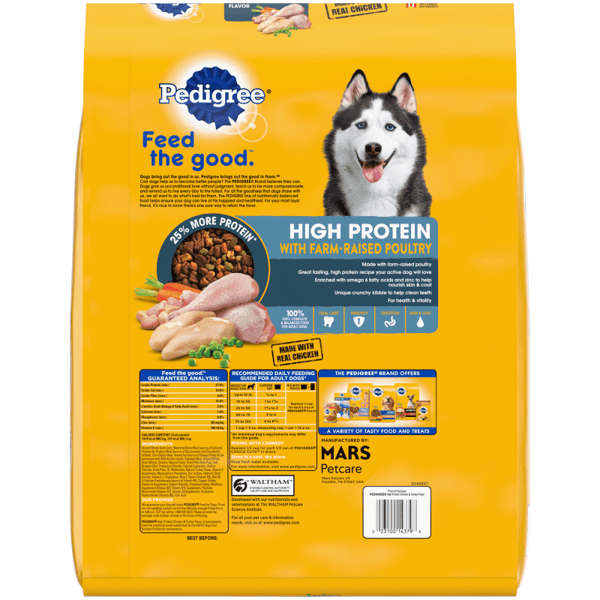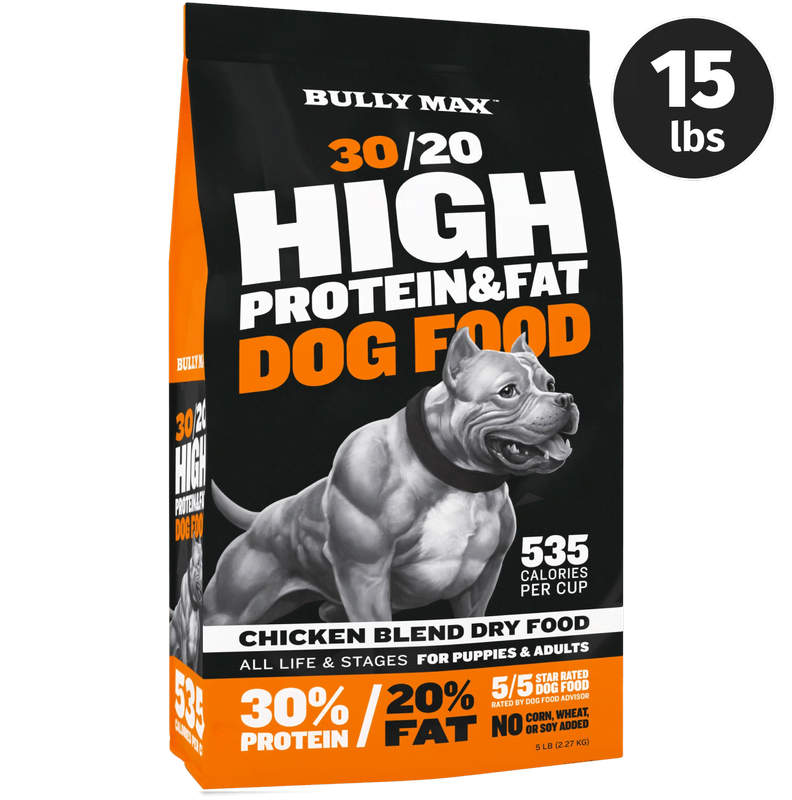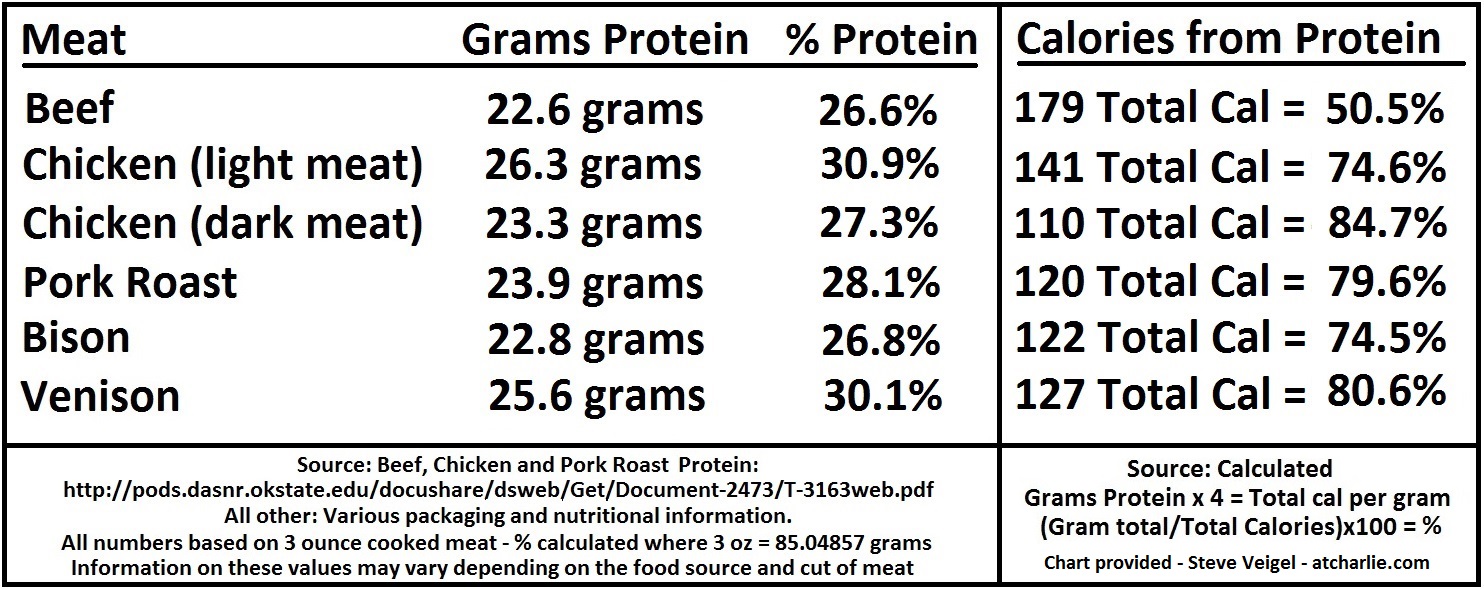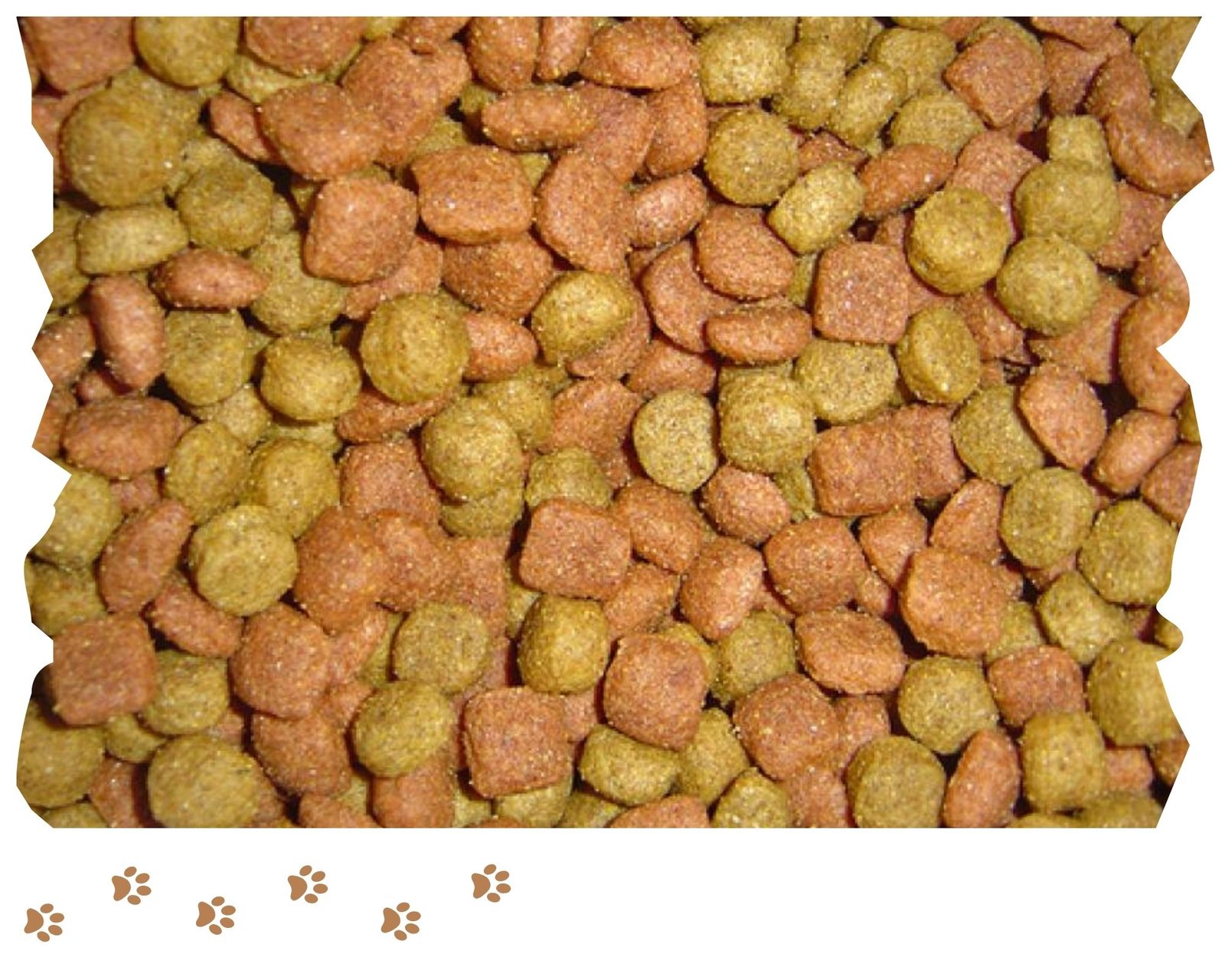Find out how much protein in dog food. Dog food typically contains between 18-32% protein, depending on the specific brand and type. Protein content in dog food is an essential factor to consider for your pet’s health and overall well-being.
Providing your furry friend with a protein-rich diet is crucial for muscle development, tissue repair, and immune system support. Dogs are omnivores, but their bodies are designed to efficiently process and utilize animal-based proteins, making it essential to choose a high-quality protein source for their food.
We’ll delve deeper into the importance of protein in your dog’s diet, how to understand and interpret protein labels on dog food, and the potential effects of inadequate protein intake. Understanding the significance of protein in dog food will help you make informed decisions about your pet’s nutrition and long-term health.
How Much Protein in Dog Food Read the completed post for more details about this.
Protein Content In Dog Food
Dog food is necessary for the health and welfare of your pet. When evaluating the quality of dog food, one of the most critical factors to consider is the protein content. Protein is a vital nutrient for dogs, playing a crucial role in their overall health, growth, and development. In this article, we will delve into the protein content in dog food, exploring its nutritional benefits and recommended protein levels for dogs.
Nutritional Benefits Of Protein
Protein is a fundamental building block for dogs’ bodies, aiding in forming and repairing tissues and muscles. It also supports healthy skin, a shiny coat, and a robust immune system. Adequate protein intake promotes proper digestion and enhances the overall energy levels of dogs. Additionally, protein provides essential amino acids required for various bodily functions, contributing to your canine companion’s overall health and vitality.
Recommended Protein Levels For Dogs
Understanding the recommended protein levels for dogs is vital in ensuring optimal nutrition. Generally, adult dogs require a minimum of 18-25% protein in their diet, while puppies and lactating females need a higher percentage, typically 22-32%. The specific protein requirements may vary based on breed, size, age, and activity level. Selecting dog food that aligns with your dog’s nutritional needs is crucial to support their overall health and well-being.
How Much Protein in Dog Food Click here for more details: Click here

Credit: www.pedigree.com
Different Sources Of Protein
Explore various protein sources in dog food, from lean meat to fish and plant-based options. Each type offers distinct nutritional benefits to support your furry friend’s health and vitality. Consider a balanced mix of proteins for an optimal canine diet.
Animal-based Proteins
Plant-based Proteins
Protein is an essential macronutrient for dogs as it is crucial to their health and well-being. Understanding the different protein sources is essential when choosing the right dog food. Whether you opt for animal-based or plant-based proteins, each option has benefits and considerations.
Animal-based Proteins
Animal-based proteins are derived from meat, poultry, fish, or eggs. These protein sources are often considered more biologically available and complete in terms of their amino acid profile. When examining the dog food ingredient list, you might come across protein sources like chicken, beef, salmon, or turkey. Animal-based proteins are highly digestible for dogs, promoting muscle development and repair. This makes them an excellent option for highly active or working dogs.
Numerous protein-rich animal ingredients are commonly found in dog food, such as chicken meal, beef meal, fish meal, and lamb meal. These ingredients are often used to provide a concentrated and easily digestible source of protein. Additionally, organ meats like liver and heart are included in some dog food formulas, offering essential nutrients and protein.
Consult your veterinarian if you’re unsure about the specific animal protein that suits your dog’s needs. They can help you determine any dietary sensitivities or specific nutritional requirements your furry friend may have.
Plant-based Proteins
Plant-based proteins are derived from legumes, grains, and vegetables. While dogs are primarily carnivorous, they can still derive nutritional benefits from plant-based proteins. Plant-based protein sources like peas, lentils, chickpeas, and soybeans are increasingly used in dog food formulas to provide alternative protein options.
Plant-based proteins can offer various health benefits, including high fiber and reduced fat content. They can also be suitable for dogs with food sensitivities or allergies to specific animal proteins. However, it’s important to note that plant-based proteins may not provide all the essential amino acids that dogs require. Consequently, dog food containing plant-based proteins should be carefully formulated to meet nutritional requirements.
Before introducing plant-based protein dog food into your pet’s diet, consult your veterinarian to ensure it aligns with their nutritional needs. They can guide you on the appropriate amounts and combinations of plant-based proteins to ensure your dog receives a well-balanced diet.
In conclusion, understanding the different protein sources in dog food is crucial for selecting the right option for your furry friend. Animal-based proteins offer a complete amino acid profile and high digestibility, making them ideal for active dogs. On the other hand, plant-based proteins provide alternative options for dogs with sensitivities or allergies, but careful formulation is necessary to ensure proper nutrient balance. By considering each source of protein and consulting with your veterinarian, you can provide the optimal diet for your dog’s overall health and well-being.
How Much Protein in Dog Food Also click here for more details about dog food: click here
Understanding The Importance Of Protein Quality
When choosing the right dog food for your furry friend, protein quality is crucial. Protein is vital for your dog’s overall health and well-being, pivotal in building and repairing tissues, maintaining a healthy coat and skin, and supporting a robust immune system.
Complete Vs. Incomplete Proteins
Proteins are composed of various amino acids, which are the building blocks of protein. It’s important to choose a dog food that contains complete proteins, which provide all essential amino acids required by your dog’s body. Complete proteins are derived from animal sources such as chicken, beef, fish, or eggs. They offer a higher biological value and are more easily absorbed and utilized by your dog’s body.
On the other hand, incomplete proteins are lacking one or more essential amino acids. These proteins are often derived from plant sources like soy or grains. While they can contribute to your dog’s protein intake, they must be combined with other protein sources to make up for the missing amino acids. This can be achieved through proper formulation and ingredient selection in commercial dog food formulas.
Amino Acid Profiles
The quality of a protein source can be determined by its amino acid profile. Dogs require 10 essential amino acids to be obtained from their diet in adequate amounts. These essential amino acids include arginine, histidine, isoleucine, leucine, lysine, methionine, phenylalanine, threonine, tryptophan, and valine.
Different protein sources have distinct amino acid profiles. For example, animal-based proteins like chicken or beef generally have a more favorable amino acid profile, providing all essential amino acids in proper proportions. Plant-based proteins, on the other hand, may lack certain essential amino acids or have imbalances that require careful formulation to ensure a complete and balanced diet.
Manufacturers of high-quality dog food carefully select protein sources and combine them in proportions to provide the necessary amino acids for your dog’s optimal health.

Credit: shop.bullymax.com
Impact Of Protein On Health
Protein is crucial to a dog’s health, supporting muscle growth and overall well-being. Ensuring the right amount of protein in dog food is vital for proper nutrition and energy levels. Adequate protein intake can lead to a healthy and active lifestyle for your furry friend.
Impact of Protein on Health
Protein plays a crucial role in your furry friend’s overall health and well-being. It is an essential nutrient that impacts various aspects of their health, including muscle development and immune system support.
Muscle Development
Protein in your dog’s diet is vital for muscle growth and repair. It provides the amino acids that are the building blocks for muscle tissues. Adequate protein intake ensures your dog can maintain healthy and strong muscles, supporting overall mobility and activity levels.
Immune System Support
Protein is also instrumental in bolstering your dog’s immune system. It helps produce antibodies and enzymes that are pivotal in fighting off infections and diseases. A protein-rich diet can help strengthen your dog’s immune response, ensuring it stays healthy and resilient against various health threats.
Understanding the impact of protein on your dog’s health can guide you in selecting suitable dietary options. By ensuring that they receive adequate protein through their food, you can contribute to their overall well-being and quality of life.
Protein Requirements Based On Dog’s Life Stage
Understanding your dog’s protein requirements is crucial for its overall health and well-being. Dogs in different life stages require varying levels of protein to support their growth, maintenance, and energy needs. Let’s explore the protein requirements based on a dog’s life stage.
Puppies
Puppies have high energy and growth requirements and need a diet with increased protein content. Protein is essential for developing muscles, tissues, and overall growth. Make sure to choose puppy-specific food that contains a minimum of 22% protein content.
Adult Dogs
A well-balanced diet is necessary for adult dogs to preserve their general health. Protein continues to be crucial in supporting muscle maintenance and energy levels. To meet these needs, look for dog food that contains a minimum of 18% protein.
Senior Dogs
As dogs age, their protein requirements may change as their activity levels and metabolism slow down. However, they still require quality protein for muscle maintenance and overall health. Look for protein-rich food with a minimum of 18% fat content designed for senior dogs to support their specific needs.
Evaluating Dog Food Labels For Protein Content
Dog owners can evaluate the protein content of their pet’s food by carefully reading and understanding the labels. By looking for key information, such as the percentage of protein and its source, they can ensure their dogs get the proper nutrition for a healthy diet.
Reading Ingredient Lists
When evaluating protein content in dog food, start by reading ingredient lists carefully.
Understanding Guaranteed Analysis
Look for the guaranteed analysis on the label for precise protein percentage information.
Considerations For Special Diets
Allergies Or Sensitivities
Similar to us, dogs can have dietary allergies or sensitivities. When selecting a protein-rich dog food for a special diet, it’s essential to carefully review the ingredient list to ensure that it does not contain any substances that could trigger an allergic reaction in your pet.
Weight Management
For dogs with weight management needs, choosing a high-protein dog food that supports their specific dietary requirements is crucial. Look for options low in carbohydrates and fat but high in lean protein to aid in weight management, muscle maintenance, and overall health.

Credit: www.atcharlie.com
Consulting A Veterinarian For Protein Recommendations
Consulting a veterinarian is crucial for expert advice on determining the right amount of protein in your dog’s diet. A veterinarian can recommend the appropriate protein intake based on your dog’s breed, age, and health condition, ensuring they receive the optimal nutrition for their overall well-being.
Customized Diet Plans
When it comes to ensuring your dog gets the right amount of protein, it’s essential to consult a veterinarian who can provide you with customized diet plans. Every dog is unique, and their protein requirements vary based on age, size, activity level, and overall health. A veterinarian will be able to consider all these factors and recommend the right amount of protein for your furry friend.
Health Conditions
Dogs with certain health conditions may have specific protein requirements. Some conditions, such as kidney disease or liver problems, may require a low-protein diet to help manage the condition and prevent further complications. On the other hand, active and highly energetic dogs may require a higher-protein diet to support their muscle development and overall performance.
If your dog has any health conditions or if you are unsure about their protein needs, consulting a veterinarian is crucial. They can evaluate your dog’s health condition and determine the right protein level for their needs.
Additionally, a veterinarian can help you choose the best source of protein for your dog. Various protein sources are available in dog food, such as chicken, beef, fish, and plant-based proteins. The veterinarian will consider your dog’s health condition, allergies, and personal preferences to recommend the most suitable protein sources for their diet.
A customized diet plan from a veterinarian will ensure that your dog gets the right balance of protein and other essential nutrients they need to thrive. Following their recommendations, you can provide your furry companion with a healthy and nourishing diet that promotes their overall well-being.
How Much Protein in Dog Food Ask yourself the questions to know better about it
Frequently Asked Questions
How Much Protein in Dog Food?
Dog food typically contains between 18-32% protein, depending on the specific brand and type. Protein content in dog food is an essential factor to consider for your pet’s health and overall well-being.
How Much Protein Is In 1 Cup Of Dog Food?
One cup of dog food typically contains around 20-30% protein, depending on the brand and type of food.
How Much Protein Is Suitable For Dog Food?
Dog food with 18-25% protein content is ideal for adult dogs. Puppies need higher levels, around 22-32%. Opt for quality protein sources like meat.
How Much Protein Per 100g Of Dog Food?
Dog food typically contains 20-30g of protein per 100g serving, depending on the specific brand and formula. It’s essential to check the label for exact amounts. Proper protein levels are crucial for your dog’s health and energy.
Is 40 Protein Too Much For A Dog?
No, 40% protein intake is not too much for dogs. It is within the recommended range for a healthy diet.
Conclusion
Understanding the protein content in dog food is crucial for maintaining your pet’s health. With the right balance of protein, your furry friend can enjoy solid muscles and overall well-being. Keep an eye on the quality and quantity of protein in their diet to ensure a happy and healthy dog.

Hello I am Farhana I have been doing research on dogs since last 10 years. I have been doing research on dog special parts or dog food since last 10 years. I have gained knowledge about my dog in these ten years so. I want to blog about it daily.

